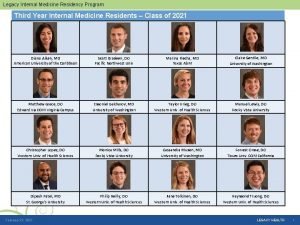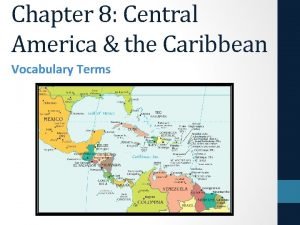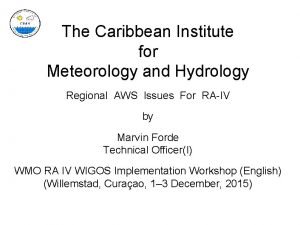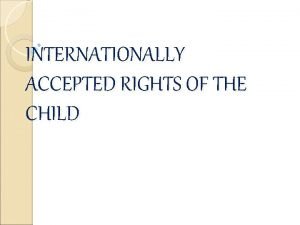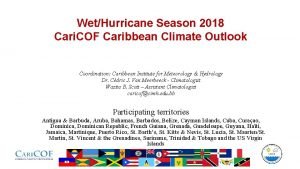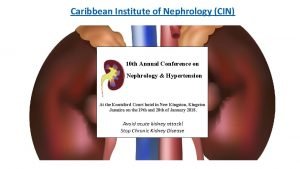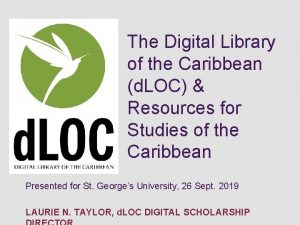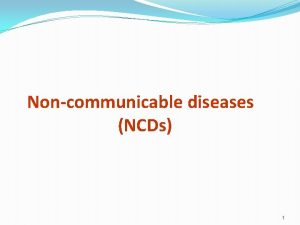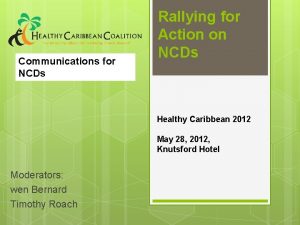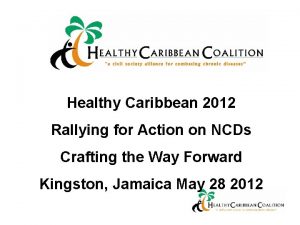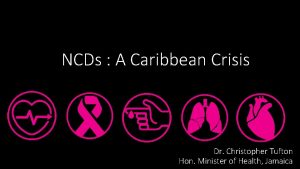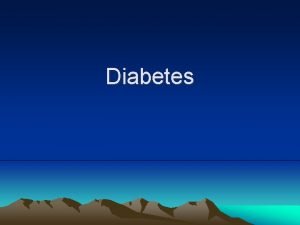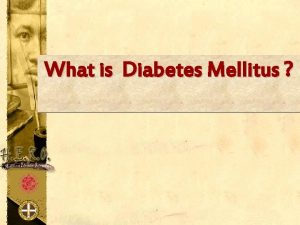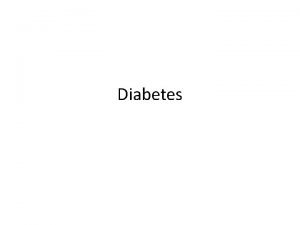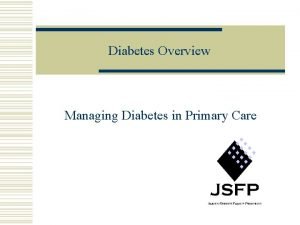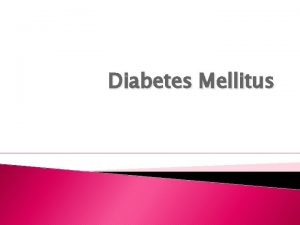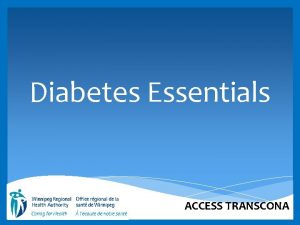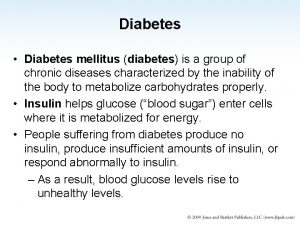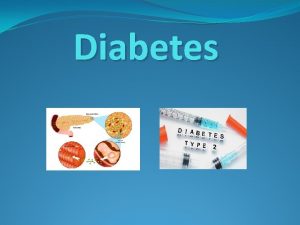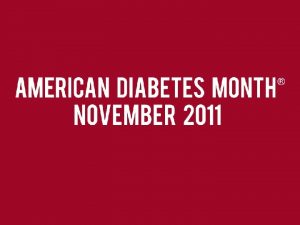NCDs and the Caribbean influence internationally University Diabetes

NCDs and the Caribbean influence internationally University Diabetes Outreach Program Ocho Rios George Alleyne March 27, 2010

Presentation § The challenges n The international response § The Caribbean response n The Caribbean place and projections

n The challenges * Dispelling the common myths about -the nature and size of the problem -the effectiveness of available interventions * Adjusting the health systems * Securing political involvement * Garnering International attention

Commonest myths NCDs affect HIC --4/5 deaths from NCDs in LMIC NCDs affect mainly the rich --In all LAC except Haiti poor more likely to have NCDs than rich NCDs –problem of men --Women in LIC 15+, NCDs=52% TBD



Chronic diseases place a substantial economic burden on society. Estimates for the United States place the costs of chronic illness at around three-quarters of the total national health expenditure (Hoffman et al. 1996). Some individual chronic diseases, such as diabetes, account for between 2 and 15% of national health expenditure in some European countries (Suhrcke et al. 2005).

8000 7, 182 Health Official Development Assistance 2001 - 2007 6, 338 7000 6, 239 6000 4, 797 5000 3, 840 4000 2, 911 3000 2, 217 2000 USD, mill 1, 126 757 688 1000 Chronic Disease 627 ODA 490 50 31 29 15 16 0 Infectious Disease and HIV & STD Control 2001 2002 2003 2004 2005 Source: www. oecd. stat. org 1, 256 1, 346 38 41 2006 2007

The international response Health agencies---WHO; PAHO n NGOs-----IDF; WHF; UICC n Politically—ECOSOC Summit of the Americas n IFIs------? ? n Philanthropics---? ? n

Grand Challenges in Chronic NCDs Goal A: Raise public awareness Grand challenge 1: Raise the political priority of NCDs Research needed: Study how to engage governments in partnership for disease prevention Daar A. et al. Nature 450, 494 -496: 2007

The Caribbean response Caribbean Cooperation in Health n Caribbean Strategy and Plan of Action n Caribbean Commission on Health and Development n Port-of-Spain Summit September 2007 n

National NCD summits – 9 countries n Inter-sectoral NCD Commissions or analogous bodies – 8 countries n Workshops with Faith Based Organizations - 2 countries n Workplace Wellness initiatives - 8 n School initiatives - 6 n

Partners - Private Sector CAIC (Caribbean Association of Industry & Commerce) issued a “Private Sector Pledge” in support of the POS NCD Summit Declaration from May 2008 workshop n Pledge commits regional private sector n n to Workplace Wellness programmes, n producing healthier products n support for Caribbean Wellness Day


Summit of the Americas 2009 n We are convinced that we can reduce the burden of non-communicable diseases (NCDs) through the promotion of comprehensive and integrated preventive and control strategies at the individual, family, community, national and regional levels and through collaborative programmes, partnerships and policies supported by governments, the private sector, the media, civil society organizations, communities and relevant regional and international partners.

We instruct our Ministers of Health, with the support of PAHO, to incorporate the surveillance of NCDs and their risk factors into existing national health information reporting systems by 2015. We encourage national planning and coordination of comprehensive prevention and control strategies for NCDs and the establishment of National Commissions where appropriate.

We therefore reiterate our support for the PAHO Regional Strategy and Plan of Action on an Integrated Approach to the Prevention and Control of Chronic Diseases Including Diet, Physical Activity, and Health. We also commit to measures to reduce tobacco consumption, including, where applicable, within the World Health Organisation (WHO) Framework Convention on Tobacco Control.

n n MINISTERIAL DECLARATION – 2009 HIGH-LEVEL SEGMENT Implementing the internationally agreed goals and commitments in regard to global public health

We also recognize that the emergence of noncommunicable diseases is imposing a heavy burden on society, one with serious social and economic consequences, and that there is a need to respond to cardiovascular diseases, cancers, diabetes and chronic respiratory diseases, which represent a leading threat to human health and development. In this regard, we: “(a) Call for urgent action to implement the World Health Organization Global Strategy for the Prevention and Control of Non-Communicable Diseases and its related Action Plan; b) Recognize that diabetes is a chronic, debilitating and costly disease associated with severe complications.

B. 2. 1 1. Realising the Nassau Declaration (2001): The Health of the Region is the Wealth of the Region THE CONFERENCE: Supported the plans for the follow up to the Port-of-Spain Declaration (2007) “Uniting to Stop the Epidemic of Chronic NCDs”, including elevating the Caribbean experience to the global level; Agreed to advocate for a special UNGASS on NCDs and include NCDs within the M & E system for the MDGs [N. B. MDG # 6] and to request that this issue be placed on the Agenda of the Meeting of Commonwealth Heads of Government (CHOGM)to be held in Trinidad and Tobago in November, 2009. (July 2009)




n n STATEMENT ON COMMONWEALTH ACTION TO COMBAT NON-COMMUNICABLE DISEASES 1. We, the Heads of Government of the Commonwealth, representing one third of the world’s population, affirm our commitment to addressing the burgeoning incidence of noncommunicable diseases (NCDs), and to increasing the ability of our countries to respond to this emerging health crisis.

n n We similarly declare our support for the call to integrate indicators to monitor the magnitude, trend and socio-economic impact of NCDs into the core MDG monitoring and evaluation system during the MDG Review Summit in 2010. We further call for a Summit on NCDs to be held in September 2011, under the auspices of the United Nations General Assembly, in order to develop strategic responses to these diseases and their repercussions.

Why an UNGASS? n Raise the profile of NCDs globally n Mobilize the international community n Secure political support for WOG action n Stimulate donor support n Galvanize action on addressing risk factors n Improve M&E of NCDs

Current activities UNGASS Caribbean –political New York Ambassadors -Concept paper -Draft Resolution for negotiation -Lobbying CARICOM -COFCOR

n Mobilizing other political support -NGOs-IDF, WHF, UICC -Briefing meetings -Demarches ministers, state capitals -Commonwealth Secretariat -Commonwealth road map -WHO/PAHO


n Can it be done? Comment: “ It almost smacks of impertinence to think that fifteen small poor Caribbean countries can mobilize the necessary support to move NCDs to the highest place in the global political agenda”

Some Caribbean strengths/lessons -recognize a progression -data directed to “head, heart, pocket” -the virtue of a political structure -collaboration eg. Canada, PAHO -appreciation of the nature of public policy -the luck of location -presence of champions

Process streams Tipping point Pr ob lem s Public policy Policies cs i t i l o P After Kingdon , 2003

“Make no small plans; they have no magic to stir men’s blood” Daniel Burnham, 1893
- Slides: 33
